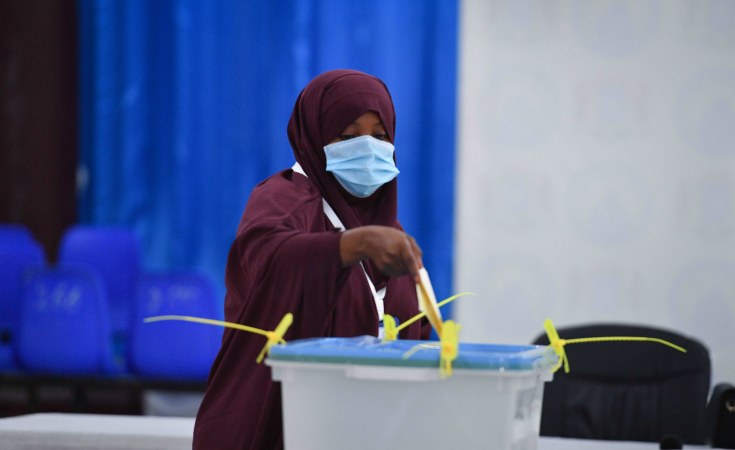Washington — Somalia's political leaders have agreed to reshape the country's political system after four days of meetings in the capital, Mogadishu.
In a communique issued early Sunday, the National Consultative Council, which includes the federal leaders, including President Hassan Sheikh Mohamud, Prime Minister Hamza Abdi Barre, and Deputy Prime Minister Salah Ahmed Jama, as well as four regional leaders and the mayor of Mogadishu, have agreed to introduce direct elections as early as next year and unify the election schedules, and endorsed establishment of a presidential system for the country.
In a departure from clan-based power sharing, the leaders agreed that one-person-one-vote elections will take place once every five years. A 15-member national election and border committee will be formed to manage all local, regional and federal elections.
The local council elections will be the first to take place on June 30 of next year. This will be followed that year by regional parliamentary and regional leadership elections on November 30, the communique read.
The leaders have agreed that there will be only two political parties that compete for power in the country. The current political parties law does not limit the number of political parties.
Agreement abolishes premiership
Perhaps the most significant article in the agreement is the restructuring of the leadership system by abolishing the premiership.
In its place, the leaders endorsed a presidential system, with the president and vice president of the country elected directly on a single ticket. The same applies to the regional presidents and their respective vice presidents.
The endorsement of a presidential system will require a federal constitutional amendment, as the current constitution provides for a parliamentary system in which lawmakers elect a president, who then appoints a prime minister. Critics have argued for a long time that the parliamentary system brought endless political squabbles between the president and prime minister.
If popular elections take place nationwide next year, that will end a controversial clan-based system known as "the 4.5," which has been used for power-sharing since 2000. That system allowed four main clans to have equal share in parliament, while a group of smaller clans got half of the share. The last election based on the 4.5 system brought Mohamud to power in May of last year.
Minister for Interior, Federal and Reconciliation Ahmed Moallim Fiqi, who read the communique hailed the agreement as "one step forward."
"This is a historic agreement which brings an end to the system used since 2000," he told VOA Somali. "It gives the Somalis the opportunity to have their say and entrust their vote with those representing them at different levels of local, regional and federal governments."
The communique did not address what happens when the current president's term ends on May 15, 2026.
But Fiqi said that next year's election will be considered as a "midterm" election, where those elected will hold their posts for two years, until 2026, when the election calendar for both local, regional and federal levels will be unified.
Opponents call agreement 'unconstitutional'
The new agreement was quickly criticized by some politicians who argued it would give term extensions to regional leaders whose terms in office currently end within months.
"Tonight's communique by the National Consultative Council is an affront to Somalia's provisional constitutional and the supremacy of our national laws," said Mursal M. Khaliif, a member of the Federal Parliament.
"Whatever it's called, this is an unconstitutional term extension for the Federal Member States and the Federal Government."
The agreement was not signed by the president of the semi-autonomous region of Puntland, Said Abdullahi Deni. Puntland this week held local council elections in which the people voted to elect their representatives, an exercise the rest of the country is working to emulate next year if this agreement is implemented.


